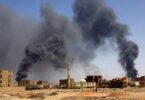Bora Bayraktar
Israeli and Palestinian leaders shook hands in front of cameras for the first time in Washington at the White House on Sept. 13, 1993. Although then-Israeli Prime Minister Yitzhak Rabin looked unhappy about shaking Arafat’s hand, who he regarded as a terrorist to be killed for a long time, the Middle East was taking a different path that day. After the end of the Cold War, Israel started peace talks not only with Palestinians, but also with Syrians and Jordanians as well.
The Israeli foreign minister of the time, Shimon Peres, wrote a book and shared his vision of a new Middle East. Peres’ “New Middle East” was a vision of peaceful coexistence in an area that has been washed with too much blood for years. According to Peres, the Israeli-Arab economic imbalance was the most important issue that needs to be addressed. In his book, he detailed a prescription for how that economic prosperity which Israel enjoyed could also be enjoyed by the Arabs.
Peres’ vision inspired the region until the 2000’s. Israelis and Palestinians negotiated almost for a decade to reach peace. But the Israeli-Palestinian talks collapsed in 2000, because it was not based on a fair ground. As Ilan Pappe and Edward Said rightfully pointed out that historical facts were ignored during the talks, wars, values and identities were left aside, which were the core of the problem indeed. Negotiations on final status issues like the status of Jerusalem and refugees’ right to return were delayed. Israel ignored the Palestinian demand to have an independent state. In fact, the Israeli-Palestinian issue is the conflict of two national identities which define themselves over the same territory. This was not addressed properly.
As a result, the peace talks collapsed in Camp David in 2000, as the Syrian track, after then-Israeli Prime Minister Ehud Barak sent President Bill Clinton as an envoy to Geneva to talk to Syrian leader Hafez Assad empty-handed. The 9/11 attacks, Afghan war, US invasion of Iraq and the Palestinian Intifada turned the Middle East into a ground of bloodbath. The 2006 July war only deepened Israel’s problems with Lebanon. In the 2000’s the region was a different place and was far from Peres’ version of the New Middle East. Even Peres himself supported Ariel Sharon’s governments at that time and helped his vision’s destruction.
In 2005 Sharon’s disengagement from Gaza, the building of a wall around the West Bank, and efforts to legitimize occupation further weakened the peace efforts. The Bush and Obama administrations’ reluctant peace efforts like Aqaba, Annapolis summits and Kerry peace initiatives were not enough to revive the talks like the 1990s.
Peres’ New Middle East seems nothing but a utopia today. We have only destruction and more bloodshed in the region. The fall of Saddam Hussein in Iraq and Muammar Qaddafi in Libya did not bring peace to these countries. Assad has been resisting in Syria for the last eight years. Israel adopted unilateralism as the main policy during these strategic quakes, bringing down Arab states. Palestinians, too, adopted unilateralism, and took steps to be recognized as an independent state at the U.N.
Today we see that all the actors and structures in the Middle East have changed dramatically. Neither Egypt or Iraq nor Syria is leading the Arab World as they did in the past. There is no charismatic Arab leader like Gamal Abdel Nasser, Anwar Sadat, Saddam or Qaddafi who could influence the Arab streets. The Saudi Arabian government claims to be the leader of the Arabs but it has its own problems securing its own regime. Riyadh and its allies have quit defending the Palestinian cause. They have not seriously condemned the US decision on Jerusalem. Riyadh seems far from understanding the social and historical depth of the issue. Two non-Arab countries seem to be leading the defense of Palestinian cause: Turkey and Iran. But their capacity, in this case, is limited.
However, the real problem in the new Middle East today is not the lack of leadership in the Arab World. It is radical steps that President Donald Trump has taken. Moving the American embassy to Jerusalem and recognizing Israeli annexation of the Golan Heights are bold moves. It seems that Trump also adopted unilateralism as his policy principle.
The real problem with his moves is that they disregard references of possible future peace talks, international decisions and norms like the U.N. Security Council Resolutions of 242 and 338, which served as the pillars of the peace process.
These unilateral steps not only threaten recent Israeli-Arab relations, but also the future of it. The US cannot provide the security of Israel by unilateral steps without the consent of the states of the region. It may seem that the Gulf countries can tolerate the moves about the American embassy in Jerusalem or the annexation of Golan Heights, but the Arab street will not. In the long run, it will cause serious problems for the US and its allies. Radical groups may use these incidents as pretext to their terrorist activities and will pose serious risks to the security of the globe.
As history has taught us, although the US (and Britain) seemed to have won in Iran after the fall of Mohammad Mosaddegh in 1953, they lost big in 1979. The Iranian revolution was a great strategic loss for the US, putting great pressure on American military and burden on the US defense budget for the last 40 years. Similarly today, Trump may seem winning for the US and Israel, but in fact, he clearly took great risks for the future. The New Middle East 4.0, which is being shaped by Trump, Netanyahu and Saudi Crown Prince Mohammed bin Salman is far from Peres’ original vision and does not look bright.






